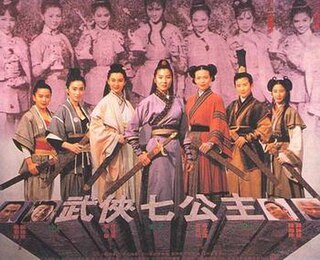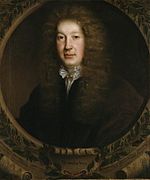Related Research Articles
This article contains information about the literary events and publications of 1700.

Richard Brome ; was an English dramatist of the Caroline era.

A Yorkshire Tragedy is an early Jacobean era stage play, a domestic tragedy printed in 1608. The play was originally assigned to William Shakespeare, though the modern critical consensus rejects this attribution, favouring Thomas Middleton.

Eliza Haywood, born Elizabeth Fowler, was an English writer, actress and publisher. An increase in interest and recognition of Haywood's literary works began in the 1980s. Described as "prolific even by the standards of a prolific age", Haywood wrote and published over 70 works in her lifetime, including fiction, drama, translations, poetry, conduct literature and periodicals. Haywood today is studied primarily as one of the 18th-century founders of the novel in English.
Giovanni Sforza d'Aragona was an Italian condottiero, lord of Pesaro and Gradara from 1483 until his death. He is best known as the first husband of Lucrezia Borgia. Their marriage was annulled on claims of his impotence in March 1497.
Anything for a Quiet Life is a Jacobean stage play, a city comedy written by Thomas Middleton and John Webster. Topical allusions suggest the play was written most likely in 1621.
The Family of Love is an early Jacobean stage play, first published in 1608. The play is a satire on the Familia Caritatis or "Family of Love," the religious sect founded by Henry Nicholis in the 16th century.

The Gamester is a Caroline era stage play, a comedy of manners written by James Shirley, premiered in 1633 and first published in 1637. The play is noteworthy for its realistic and detailed picture of gambling in its era.
The Double Marriage is a Jacobean era stage play, a tragedy written by John Fletcher and Philip Massinger, and initially printed in the first Beaumont and Fletcher folio of 1647.
Aglaura is a late Caroline era stage play, written by Sir John Suckling. Several aspects of the play have led critics to treat it as a key development and a marker of the final decadent phase of English Renaissance drama.

Holy Weapon is a 1993 Hong Kong wuxia film directed by Wong Jing. The film's Chinese title means Seven Princesses of Wuxia.

The Antipodes is a Caroline era stage play, a comedy written by Richard Brome c. 1636. Many critics have ranked The Antipodes as "his best play...Brome's masterpiece," and one of the best Caroline comedies – "gay, imaginative, and spirited...;" "the most sophisticated and ingenious of Brome's satires." Brome's play is "a funhouse mirror" in which the audience members could "view the nature of their society."
The Northern Lass is a Caroline era stage play, a comedy by Richard Brome that premiered onstage in 1629 and was first printed in 1632. A popular hit, and one of his earliest successes, the play provided a foundation for Brome's career as a dramatist.
The Sparagus Garden is a Caroline era stage play, a comedy by Richard Brome. It was the greatest success of Brome's career, and one of the major theatrical hits of its period.
The Wild Gallant is a Restoration comedy written by John Dryden. It was Dryden's earliest play, and written in prose, except for the prologue, and the epilogue, which are in verse. It was premiered on the stage by the King's Company at their Vere Street theatre, formerly Gibbon's Tennis Court, on February 5, 1663. As Dryden himself stated in his Preface, it was "the first attempt I made in Dramatique Poetry."
The New Academy, or the New Exchange is a Caroline era stage play, a comedy written by Richard Brome. It was first printed in 1659.
The Novella is a Caroline era stage play, a comedy written by Richard Brome. It was first published in the 1653 Brome collection Five New Plays, issued by the booksellers Humphrey Moseley, Richard Marriot, and Thomas Dring.
A Mad Couple Well-Match'd is a Caroline era stage play, a comedy written by Richard Brome. It was first published in the 1653 Brome collection Five New Plays, issued by the booksellers Humphrey Moseley, Richard Marriot, and Thomas Dring.
The Queen's Exchange is a Caroline era stage play, a tragicomedy written by Richard Brome.
Henry Norris (1665–1730?), also known as "Jubilee Dicky", was an English actor.
References
- ↑ The Works of John Dryden, edited by Sir Walter Scott and George Saintsbury; Edinburgh, William Paterson, 1884; Vol. 8, p. 578.
- ↑ Alfred Harbage, "Elizabethan-Restoration Palimpsest," Modern Language Review Vol. 35 No. 3 (July 1940), pp. 287–319.
- ↑ Harbage, p. 306.
- ↑ Metthew Steggle, Richard Brome: Place and Politics on the Caroline Stage, Manchester, Manchester University Press, 2004; p. 191.
